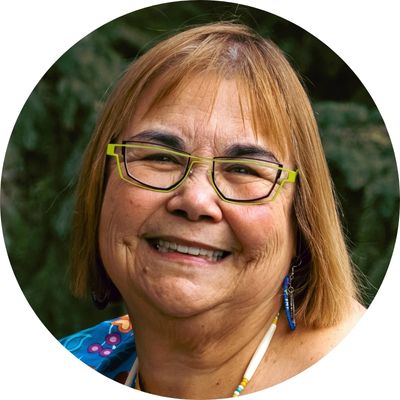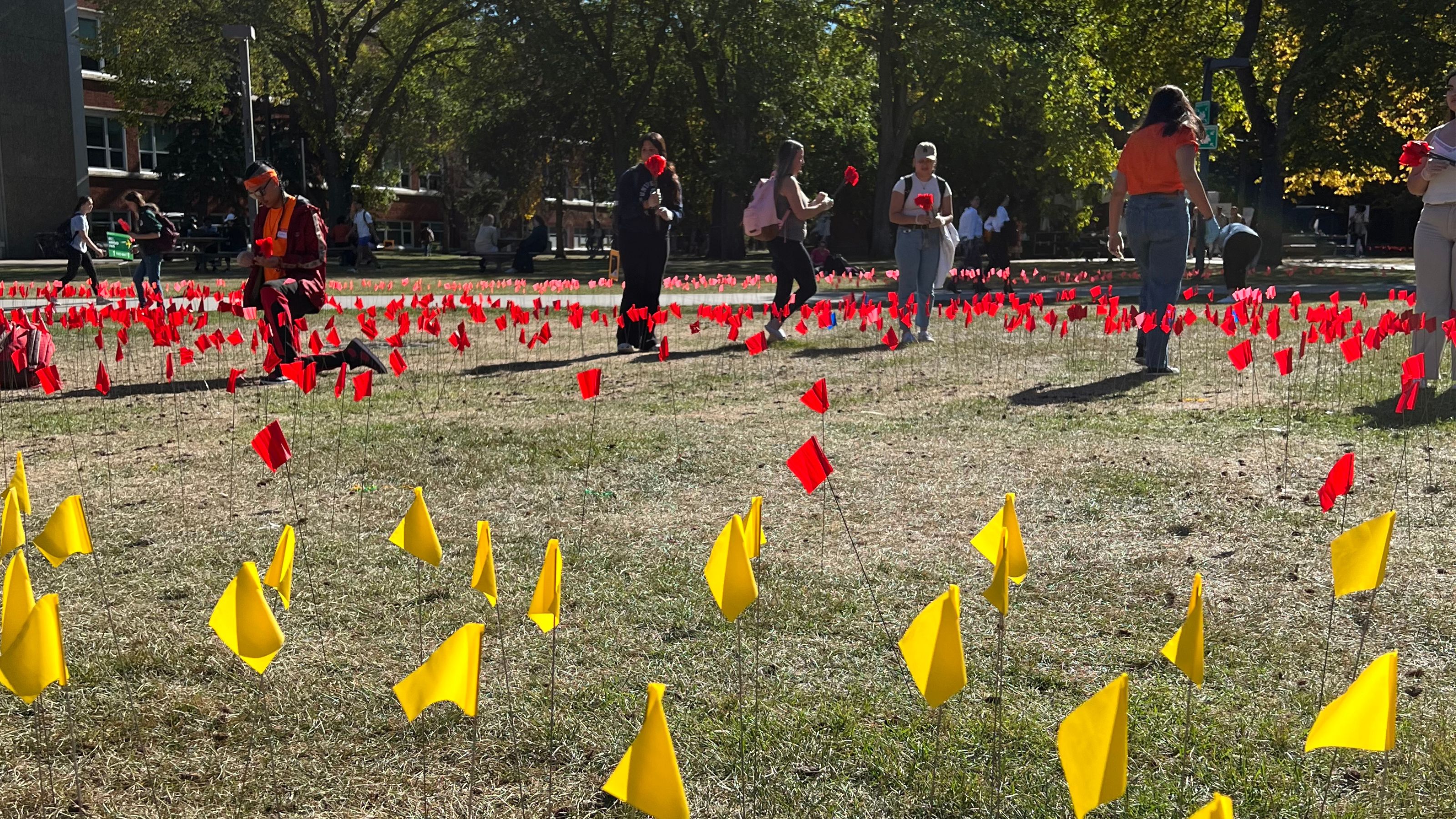The National Day for Truth and Reconciliation was established in 2021 as a statutory federal holiday to honour and remember Residential School victims, survivors, their families and communities. The day aims to make the public acknowledgement of the history and legacy of residential schools a vital component of the reconciliation process.
In commemoration, the University of Alberta is flying the national, provincial and university flags at half-mast September 26-30, 2022.
The day of remembrance is an opportunity for Canadians to learn about the children who did not come home from residential schools as well as the harm caused by the multi-faceted policies of assimilation of which residential schools were only one.
Part of my role as Vice-Provost, Indigenous Programming and Research at the University of Alberta is to educate and to collaborate on work to bring these, and other colonial experiences, to light. As we mark the second National Day for Truth and Reconciliation it is the children and the families of the Residential School System that are on my mind and in my heart.
The Truth and Reconciliation Commission of Canada (TRC) worked tirelessly to bring this dark chapter of Canadian history to light, and survivors of the residential school system bravely shared their experiences, detailing the systemic abuse, malnourishment and indoctrination that took place over the hundred plus years that the schools operated.
It is estimated that more than 150,000 First Nations, Inuit, and Métis children attended Indian residential schools. Conservative estimates of the number of children who died while attending these schools is placed at more than 4,100 and as we have learned from the discovery of graves, the final count will be significantly more.
Calls to Action 71-76, asked the federal government to accurately detail the number of children who died, to establish a National Residential School Student Death Register and to locate the bodies of children who died so that they can be properly memorialized. I'm grateful to my Indigenous and non-Indigenous colleagues whose work is helping to respond to these calls, such as the researchers at the Institute of Prairie and Indigenous Archaeology (IPIA).
How to Advance Reconciliation
As National Truth and Reconciliation Day approaches, if you wish to learn more and have not familiarized yourself with it already, I encourage you to read the TRC report and Calls to Action and make them a priority as you engage in your teaching, learning and research endeavors. There are also UofA-specific goals you can contribute to that are outlined in Braiding Past, Present and Future: University of Alberta Indigenous Strategic Plan.
As part of the actions you can take to advance reconciliation, you can help First Nation, Métis, and Inuit students with financial need to overcome these barriers by giving to the FNMI Student Emergency Award. Gifts of any amount will make a difference and help to improve access to education for First Nation, Inuit and Métis peoples. Indigenous students at the U of A with demonstrated financial need are eligible for support through the award.
There are many books, films and presentations available that share about a chapter of our common history that many Canadians know little about. A powerful film by Tim Wolochatiuk, called We Were Children, is available through the National Film Board of Canada for those who wish to learn more.
Lastly, in light of the renewed focus on Indian Residential Schools, the IPIA and the Kule Institute for Advanced Study have also partnered to develop a Rapid Research Response three-part web-series to facilitate conversations by highlighting the voices of experts, community members, and faculty members across the University of Alberta. They are sharing their expertise on the history of residential schools, the current work being done to locate missing children, how the impacts and trauma of residential schools continues to this day, and how we move forward for resurgent Indigenous futures in the lands known as Canada.

Dr. Florence Glanfield
Vice-Provost (Indigenous Programming and Research)
RESOURCES
- Truth and Reconciliation Commission of Canada
In order to redress the legacy of residential schools and advance the process of Canadian reconciliation, the Truth and Reconciliation Commission makes 94 calls to action. - National Centre for Truth and Reconciliation
- Reclaiming Power and Place: The Final Report of the Inquiry into Missing and Murdered Indigenous Women and Girls
The National Inquiry looked into and reported on the systemic causes of all forms of violence against Indigenous women and girls. - Royal Commission on Aboriginal Peoples
The RCAP was mandated to investigate and propose solutions to the challenges affecting the relationship between Aboriginal peoples (First Nations, Inuit, Métis Nation), the Canadian government and Canadian society as a whole. - Aboriginal Healing Foundation
The AHF provides resources to promote reconciliation and encourage and support Aboriginal people and their communities in building and reinforcing sustainable healing processes that address the legacy of physical, sexual, mental, cultural, and spiritual abuses in the residential school system, including intergenerational impacts. - Legacy of Hope Foundation
A national Indigenous charitable organization with the mandate to educate and create awareness and understanding about the Residential School System. - Indian Residential School Survivors
A 24 hr crisis line. Call 1 (866) 925-4419 if you require further emotional support or assistance.
